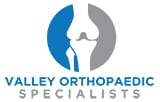Herniated discs are a common spinal condition that can cause significant discomfort and affect your daily life. Residents in Shelton, Fairfield, and Oxford, Connecticut often seek expert orthopedic spinal care with Valley Orthopaedic Specialists to address herniated disc issues, as timely diagnosis and treatment can prevent complications and restore mobility. Understanding what herniated discs are, their causes, symptoms, and treatment options is essential for anyone experiencing back or neck pain.
What Are Herniated Discs?
A herniated disc, sometimes called a slipped or ruptured disc, occurs when the soft, gel-like interior of a spinal disc pushes through a tear in the tougher exterior. Spinal discs act as cushions between the vertebrae, allowing flexibility and absorbing shock during daily movement. When a disc herniates, it can irritate nearby nerves, causing pain, numbness, or weakness in the affected area. Herniated discs can occur in any part of the spine, including the cervical (neck), thoracic (mid-back), and lumbar (lower back) regions.
What Causes Herniated Discs?
Several factors can contribute to a herniated disc:
- Age-related degeneration: As we age, spinal discs lose water content and become less flexible, making them more prone to tears or ruptures.
- Injury or trauma: Accidents, falls, or sudden impacts can damage the discs and lead to herniation.
- Repetitive strain: Jobs or activities that involve heavy lifting, twisting, or bending can put excessive pressure on spinal discs over time.
- Genetics: Some individuals may have a predisposition to disc problems due to inherited structural differences in their spine.
- Lifestyle factors: Obesity, poor posture, and sedentary habits can increase stress on the spine and contribute to disc herniation.
Understanding the cause of your herniated disc is critical because it guides your treatment plan, whether it’s conservative management or surgical intervention by an orthopedic spine surgeon near you.
Signs You Might Have a Herniated Disc
Herniated discs can produce a variety of symptoms depending on the location and severity of the herniation. Common signs include:
- Localized pain: Sharp or aching pain in the neck, mid-back, or lower back
- Radiating pain: Pain that travels down the arm or leg, often described as burning or shooting
- Numbness or tingling: Affected nerves can cause sensations of tingling or numbness in the extremities
- Muscle weakness: Compressed nerves may lead to weakness in the muscles connected to those nerves
- Reduced mobility: Difficulty bending, twisting, or performing everyday activities
If you notice these symptoms, especially if they persist or worsen over time, it’s important to consult an orthopedic spine specialist near you. Early evaluation can prevent further nerve damage and improve recovery outcomes.
Treatment for Herniated Discs
Treatment for herniated discs typically begins with conservative, non-surgical approaches. At Valley Orthopaedic Specialists, expert orthopedic spine surgeons prioritize less invasive methods before considering major surgery. Common non-surgical treatments include:
- Physical therapy: Exercises to strengthen the muscles supporting the spine and improve flexibility
- Pain management: Medications or interventional injections, such as epidural steroid injections, to reduce inflammation and pain
- Bracing or orthotics: Supports that help relieve pressure on the spine and stabilize affected areas
If conservative treatments do not provide sufficient relief, surgical options may be considered. Minimally invasive procedures performed by highly-trained orthopedic spine surgeons can address the herniation while minimizing tissue damage and recovery time. Surgical options may include:
- Microdiscectomy: Removal of the herniated portion of the disc to relieve nerve compression
- Disc replacement or spinal fusion: Procedures to restore stability and function to the affected spinal segment
- Decompression surgery: Relieving pressure on compressed nerves to reduce pain and improve mobility
Each patient’s case is unique, so a thorough evaluation by an orthopedic spine specialist is essential to determine the most appropriate treatment plan.
Expert Orthopedic Care for Herniated Discs in Connecticut
If you are experiencing persistent back or neck pain, numbness, or weakness, it may be time to consult with an orthopedic spine surgeon in Shelton, Oxford, or Fairfield, Connecticut. Valley Orthopaedic Specialists offers comprehensive care for herniated discs, from non-surgical treatments like physical therapy and pain management to advanced minimally invasive surgeries. Their experienced team works closely with each patient to create a customized treatment plan, ensuring the best possible outcome.
Early intervention is key to managing herniated discs effectively. By addressing symptoms promptly, patients can prevent further complications, regain mobility, and return to daily activities with less pain and greater comfort.

